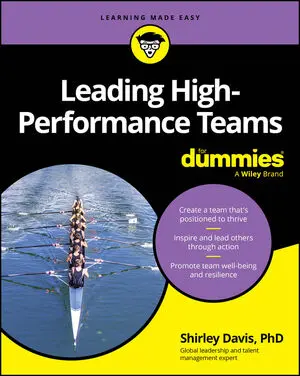Their reasoning is this: Millennials embody all the stereotypes that others generations love to hate. In an effort to combat the idea that they’re narcissistic, lazy, impatient, rude, and entitled, these “I’m-Not-a-Millennial” Millennials say either, “Oh, I’m not a Millennial, trust me.” Or, “Ugh, I’m not that kind of Millennial; I hate labels.” The funny thing is that they usually tend to embody many of the traits and values that positively define Millennials.
A portrait of the “I’m-Not-a-Millennial” Millennial
Trista has always been a good worker, but she has also always been the person who comes to mind when you read an article about Millennials or hear a presentation about them. One of her best qualities is her ability to connect with everyone at the office, and you’ve noticed how she leads by developing personal relationships with people. You’ve had to have more than one meeting with her about taking on too much as she constantly volunteers for projects but then struggles when she begins to lose the balance she seeks.When you share some information with her (wink, yes that’s some blatant self-promotion), she scoffs and says, “Um. I’m not a Millennial. I don’t believe in that kind of stuff anyway. Isn’t it just more about life stage?” Taken aback, you think about how not to say what you’re thinking: “But, Trista, articles similar to this have helped me know how to manage you.”
Breakdown of the “I’m-Not-a-Millennial” Millennial
Oh Trista, Trista, Trista. This is by far the most common type of Millennial managers come across and the most difficult because they reject generational theory (at first). Trista fits so perfectly with her segment because she- Is incredibly hard-working but demands flexibility
- Has a knack for building close bonds with her co-workers without knowing that it’s an inherently Millennial way of leading
- Believes she is unique — which is the most Millennial thing to think because the entire generation was raised by a sea of Boomers who told them, “You are so special and unlike any other person in this world”
- Doesn’t believe she shares anything in common with the Millennial masses
- Thinks that what defines a Millennial is being a bad, entitled employee
What makes an “I’m-Not-a-Millennial” Millennial tough to manage
To put it simply, they turn a blind eye to the truth. They’re unwilling to accept that they have some of the most powerful and beneficial Millennial traits and behaviors and are representing their generation to great advantage! By rejecting the topic of generations, they lose the generational perspective that could help them build stronger connections across generations and also better manage their manager, who likely belongs to a different generation. They see the topic of generations as the easy way out, a way to stereotype and put people into a box (a box that they don’t see themselves belonging in). They could be toxic among their own generational peers because they look down on anyone who has the traits they’ve deemed to be Millennial-specific.Why “I’m-Not-a-Millennial” Millennials can be great
While they may refuse to see what the mirror (or the HR file) says about their Millennial qualities, this segment has some excellent qualities. Instead of getting frustrated by their perceived lack of self-awareness, train your brain to know that- They are one of the best representations of the Millennial generation without realizing it.
- They often embody the best qualities of Millennials (hard-working, relational, creative) and leave the less appealing ones behind (entitled, lazy, narcissistic).
- They’ll reflect someday on their past and acknowledge who they really are.
- They can be won over to the topic once you show them it’s not about pointing out flaws and weaknesses, but creating a better understanding of who we are at work and why.
Working with the denial of the “I’m-Not-a-Millennial” Millennial
While they can be challenging (especially as they might ruffle some of the other Millennial employees’ feathers), it is possible to manage these Millennials in a way that works for both you and them. Here are some strategies to manage this Millennial persona, and maybe even win them over:- Express your love for Millennials Take time to vocally express the things you appreciate about Millennials in front of the “I’m-Not-a-Millennial” Millennials. They probably only notice the negatives and need a manager like you to point out the good stuff.
- Resist the urge to point out their Millennial qualities. Managers are likely to say things like “Wow! What you just did/said was so Millennial!” While you think you are being astute, this persona may not appreciate the sentiment. While the truth will be obvious and even a good thing in your eyes, for them it might feel like a way to strip them of their hard-earned reputation of being an excellent employee. A sure way to turn off their willingness to connect is to poke fun and announce all the Millennial things about them. Bite your tongue as best you can, and maybe when they start to realize it themselves, you all can have a fun sitcom moment of realization and laughter.
“I don’t pay attention to the incessant stereotyping of Millennials in the media and in corporate America: ‘They only want to text and don’t actually want to have a conversation; they lack motivation and drive; they’re entitled and not loyal.’ In my experience, I’ve found Millennials to be the exact opposite. Perhaps it’s a leadership issue versus a Millennial issue.” — Cathie S., Manager
- Help them find their Millennial selves. Groan, could this sound cheesier? The real goal is to give these Millennials the tools, resources, dialogues, trainings, and conversations to help them turn all of their “I’m not that Millennial” defenses to “I am a Millennial!” celebrations.






